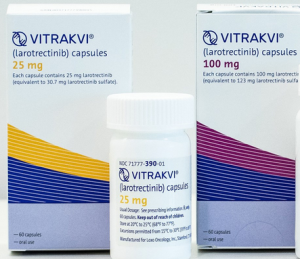Welcome to 2019. We hope you enjoyed the holidays and look forward to meeting and greeting many of you next week in San Francisco for Biotech Week. Several members of the Bionest team will be in attendance, and if you’d like to get together, we look forward to hearing from you.
Last year, we started our 2018 blogging with an accounting of some of the events and topics we expected to dominate industry conversation at the conference and throughout the year. Many of these same trends will continue to be important in the months to come. But here are a few areas we’ll be watching especially closely:
Drug Pricing Issues Continue to Dominate — with a Few New Twists
 The high cost of drugs, especially in the United States, and pressures on the industry from consumer groups, Congress, and The White House to reduce drug prices was a frequent news topic during 2018. We saw some new policy initiatives aimed at addressing the problem, and a growing influence of the consumer watchdog organization Institute for Clinical and Economic Review (ICER), whose cost-effectiveness reviews could increasingly impact pharma pricing decisions. Following the mid-term elections, the balance of power within the U.S. House of Representatives has changed dramatically, raising the possibility that drug pricing becomes an area where the President and the House Democrats reach agreement about new actions. As a result, many drug developers are watching the situation with concern.
The high cost of drugs, especially in the United States, and pressures on the industry from consumer groups, Congress, and The White House to reduce drug prices was a frequent news topic during 2018. We saw some new policy initiatives aimed at addressing the problem, and a growing influence of the consumer watchdog organization Institute for Clinical and Economic Review (ICER), whose cost-effectiveness reviews could increasingly impact pharma pricing decisions. Following the mid-term elections, the balance of power within the U.S. House of Representatives has changed dramatically, raising the possibility that drug pricing becomes an area where the President and the House Democrats reach agreement about new actions. As a result, many drug developers are watching the situation with concern.
We believe the question of how to price and best provide patient access to new one-time, potentially curative gene and cell therapy treatments will attract more debate in 2019. There is much anticipation around the likely approval of Novartis’ Zolgensma (AVXS-101), a one-time gene therapy for spinal muscular atrophy type 1. The treatment, which entered the Novartis pipeline through acquisition of AVXS-101’s developer, AveXis, has been estimated as cost-effective in the range of $4-$5 million, according to AveXis’ president. In late December, ICER released preliminary calculations that determined Zolgensma to be cost-effective at a $2 million price, somewhat affirming Novartis’ assessment of the treatment’s value. Novartis, however, has argued that ICER ought to accept a higher valuation based on the ultra-rarity of the disease. Time will tell what ultimate price is set, and how such one-time treatments can be paid for.
New Players Aim to Shake-up HealthCare Delivery
 Policy makers are not alone in trying to address rising healthcare costs and the quality and efficiency of healthcare delivery. In 2018, we saw the interesting teaming of Amazon, Berkshire Hathaway, and JP Morgan Chase to form an independent healthcare company whose purpose was to reduce healthcare costs and provide high quality services for the trio’s combined 1.1 million employees. Amazon, particularly, has been ramping up its healthcare focus in recent weeks. In December, the company hired pharmacy expert Jason Tzau to serve as Principal of Amazon’s U.S. Healthcare Benefits Initiatives and assist with the joint venture, as well as a variety of other medical experts on subjects including health data management, cardiology, primary care, and other specialties. Amazon acquired online pharmacy PillPack in 2018 to sell prescription drugs online.
Policy makers are not alone in trying to address rising healthcare costs and the quality and efficiency of healthcare delivery. In 2018, we saw the interesting teaming of Amazon, Berkshire Hathaway, and JP Morgan Chase to form an independent healthcare company whose purpose was to reduce healthcare costs and provide high quality services for the trio’s combined 1.1 million employees. Amazon, particularly, has been ramping up its healthcare focus in recent weeks. In December, the company hired pharmacy expert Jason Tzau to serve as Principal of Amazon’s U.S. Healthcare Benefits Initiatives and assist with the joint venture, as well as a variety of other medical experts on subjects including health data management, cardiology, primary care, and other specialties. Amazon acquired online pharmacy PillPack in 2018 to sell prescription drugs online.
The e-commerce giant is partnering with a Seattle start-up company, Xealth, and two hospitals, Providence Health Systems and University of Pittsburgh Medical Center, to link doctors, patients, and both Amazon and other e-commerce platforms to acquire specific physician-recommended medical products to help patients in their post-treatment recovery. Amazon’s newest healthcare initiative is Amazon Comprehend Medical, which uses machine learning to extract medical data from patient records; Roche Diagnostics is reportedly already using this technology to help select patients for clinical trials.
Amazon is hardly alone as a non-traditional company building a focus on healthcare. Other technology companies making a big push into healthcare delivery include Apple and Google, and we expect to hear more about such initiatives in 2019.
The Impact of Brexit
 The ultimate result of Brexit deliberations has yet to be decided. But the prospect of a hard ‘no deal’ Brexit is increasingly threatening to occur, and a majority of those in the pharmaceutical industry and United Kingdom healthcare organizations are watching the situation with great apprehension. Some UK pharmaceutical companies have been stockpiling medicines as part of their contingency plans, and the UK government is asking companies to institute other measures beyond the stockpiles already in place.
The ultimate result of Brexit deliberations has yet to be decided. But the prospect of a hard ‘no deal’ Brexit is increasingly threatening to occur, and a majority of those in the pharmaceutical industry and United Kingdom healthcare organizations are watching the situation with great apprehension. Some UK pharmaceutical companies have been stockpiling medicines as part of their contingency plans, and the UK government is asking companies to institute other measures beyond the stockpiles already in place.
The impact will not be limited to problems with medications entering the UK; delays are also likely for medications being shipped across borders into Europe. Steve Bates, chief executive of the Bioindustry Association, told industry publication PharmaPhorum that a ‘no deal’ Brexit would lead to a major “dis-integration of the complex regulated medicines market across Europe in terms of regulation, cross border movement of goods, comparative pricing and intellectual property.” GlobalData analysts predict that in the event of a ‘no-deal’ Brexit, the United Kingdom will lose much of its standing as a desirable place for research and development. And, as we have already written, Britain may be forced to write its own guidelines for clinical trials and regulatory approvals.
Continued Move Toward Tumor Agnostic Therapies
 Traditionally, cancer drugs have been developed and approved for the treatment of tumors based on their initial location in the body. But in May 2018, the U.S. Food and Drug Administration issued its first approval for a drug based on a specific genetic biomarker — microsatellite instability-high (MSI-H) or mismatch repair deficient (dMMR) genetic abnormalities that affect DNA repair. In November, a second such tumor agnostic treatment was approved, Vitrakvi (larotrectinib), from Bayer and Loxo Oncology.
Traditionally, cancer drugs have been developed and approved for the treatment of tumors based on their initial location in the body. But in May 2018, the U.S. Food and Drug Administration issued its first approval for a drug based on a specific genetic biomarker — microsatellite instability-high (MSI-H) or mismatch repair deficient (dMMR) genetic abnormalities that affect DNA repair. In November, a second such tumor agnostic treatment was approved, Vitrakvi (larotrectinib), from Bayer and Loxo Oncology.
Vitrakvi is a tyrosine kinase inhibitor that targets a key genetic driver of cancer, a neurotrophic tyrosine receptor kinase (NTRK) gene fusion. NTRK fusions are rare but occur in cancers arising in many sites of the body. Prior to this approval, there had been no treatment for cancers that frequently express this mutation, like mammary analogue secretory carcinoma, cellular or mixed congenital mesoblastic nephroma and infantile fibrosarcoma.
These approvals reflect the increasing move towards precision medicine and the understanding of cancer based on genetic abnormalities that is being enabled by advances in gene sequencing technologies and the growing ability to detect key biomarkers that are implicated across tumor types. As more such genetic markers are identified, we predict an increasing shift in how new oncology drugs are developed, moving away from defining indications for drug development based on tumor locations to new biomarker-defined indications.